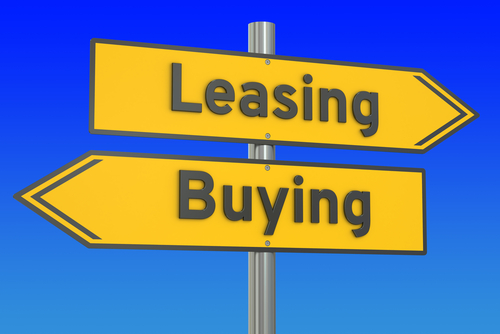Provisions in the 2018 tax reform bill are enticing businesses to upgrade their outdated equipment. However, do they buy or lease? With the new corporate tax rate sitting comfortably at 21%, businesses large and small are rethinking their old purchasing plans and changing the way they approach their bottom line. The new tax laws are prompting some to move away from owning and embrace long-term leasing. As technology evolves, these companies are poised to change with it. Businesses are spending money on new equipment and giving the economy the healthy jolt it needs.
What are the 3 Key Provisions Affecting Equipment Procurement?
- The lower tax rate for businesses (21%)
- Like-kind exchanges limited to real property (real estate)
- Companies can apply an accelerated depreciation bonus of 100% for capital equipment. It relates to new and used items and can be used in purchase year.
Can I Still Use a Like-Kind Exchange to Obtain New Equipment?
Swapping one asset for a similar one (and deferring taxes) is referred to as a like-kind exchange (Section 1031). The old definition of property allows businesses to trade in an older model of machinery, equipment or vehicles for a newer version. It is no longer possible. Section 1031 now applies only to real property or real estate. Companies use this loophole to procure updated products. If they are unable to purchase or lease new items, they must hold onto the older equipment
What is the Purpose of an Accelerated Depreciation Bonus?
It is meant to increase corporate spending and encourage the use of the latest technology and growth. Since this provision concerns the buying and leasing of new or used products, many companies are considering upgrading outdated equipment. If your business is thinking of buying, get busy. This tax gift has a shelf-life. The one-time bonus drops its rate to 80% in 2023 and reduces it to 20% the following year.
Are Businesses Switching from Buying to Leasing Equipment?
It is already happening. The leasing industry is now a $1 trillion industry and set for even more growth. Because many businesses now lease, the 2018 tax reform bill favors using vs. owning. Currently, eight out of 10 companies lease their equipment rather than buy. It saves them on the cost of maintaining and repairing outdated equipment. With leasing, a business can upgrade to the latest, most efficient products every few years. Having updated systems means you are more competitive in your field, can recruit and hire top employees and keep a stronger bottom line.
Don’t You Lose Money on Leasing?
If you have the right type of lease, your business can benefit. An operating lease has a lower capitalized asset cost compared to a loan or cash transaction. This kind of agreement does not affect a company’s profit and loss statements the same way as purchasing does. There is no P&L front-end impact the way there is with buying. Compared with borrowing to buy, leases have a better return on assets (ROA), return on invested capital (ROIC) and return on capital employed (ROCE) for the lessee. To determine if leasing equipment is a better option for your company, speak with a tax professional about how you can improve your bottom line.
Dutton Legal Group – Indiana’s Tax Resolution Law Firm
Dutton Legal Group helps the people and businesses of Indiana navigate ever-changing State and Federal tax codes. Our goal as experienced tax attorneys is to assist you in finding an immediate, cost-effective answer to your tax challenges. We provide a variety of tax services from balance resolution and return preparation to wage garnishment relief and audit assistance. Make Dutton Legal Group your next call at 1-800-334-0255 or send an email to request a free consultation. Trustworthy and affordable, for over 15 years.


